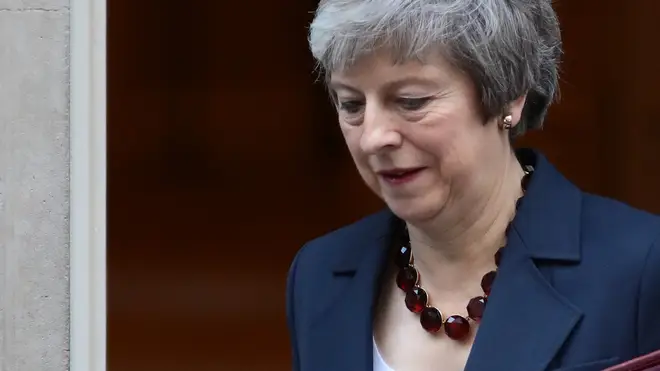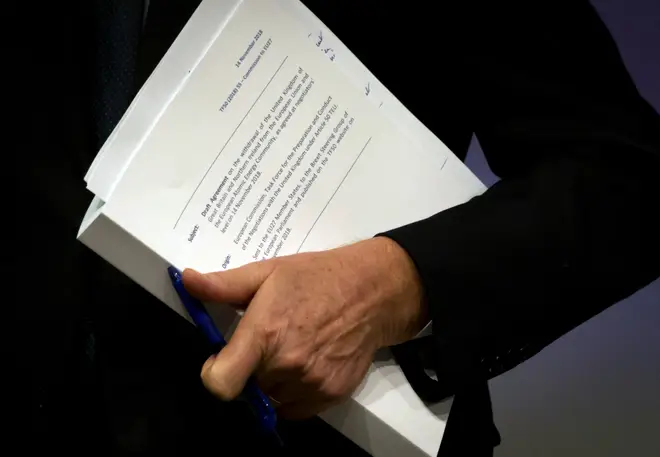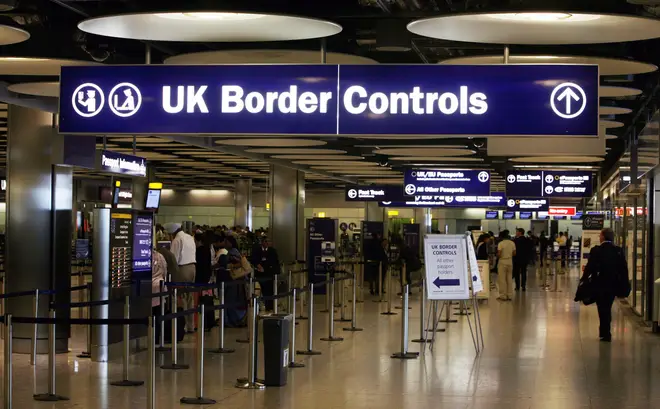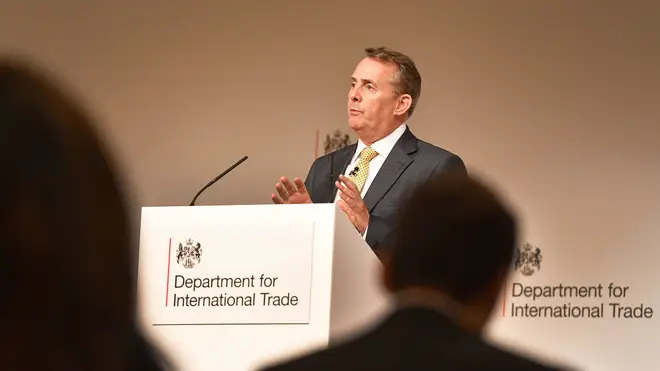
Ali Miraj 12pm - 3pm
15 November 2018, 07:38 | Updated: 28 October 2019, 15:53

Cabinet Ministers have backed a 585-page draft withdrawal agreement between the UK and EU after a five-hour meeting with Theresa May, but what does the agreement actually say?
The 585-page document was published late Wednesday night, after a five-hour-long Cabinet meeting at Downing Street.
The draft Brexit agreement covers 'divorce issues', setting out arrangements for citizens' rights, the transitional period, matters of the ECJ, and matters of the Irish border. It also establishes a new joint committee between the UK and EU which will oversee the implementation and interpretation of Brexit and the withdrawal agreement.
- Brexit timeline: Key dates as the UK prepares to leave the EU
- What is the Irish border problem?
- The 1922 Committee explained

The transitional (or implementation) period will end on the 31st December 2020, however this can be extended if decided by the joint committee before the 1st July 2020.
If the transition period is extended, for whatever reason, the UK will still contribute financially to the EU budget for as long as required.
The draft agreement says that if there is no trade agreement between the UK and the EU, there are two options - an increase transition period or the use of the "backstop" to ensure there is no hard border in Ireland.
The backstop is the agreement both sides struck in December 2017 to guarantee to avoid a hard border under all circumstances.
If the backstop is needed, it will involve a temporary customs union encompassing not just Northern Ireland but the whole of the UK, in order to respect the constitutional and economic integrity of the UK.
However, Northern Ireland will be in a deeper customs relationship with the EU than Great Britain, including being more closely tied to the rules of the EU single market.
Matters of the withdrawal agreement will be handled by a new joint committee with representatives from both the United Kingdom and European Union.
It will be held responsible for the implementation of the withdrawal agreement, and to resolve any issue with its interpretation.
A number of committees will also be established for matters of citizens' rights, finance, the Irish border, Gibraltar, Cyprus, and other withdrawal issues.
For UK/EU nationals seeking a new residence status, their new host country must ensure a "smooth, transparent and simple" administrative procedure, and application forms must be "short, simple and user friendly".
Applications made as a family at the same time will also be considered together.
In order for these applications to be processed, the UK will continue to take part in European Union IT systems that share social security information, and will continue to pay "related costs".

The agreement will mean an end of freedom of movement of people.
The government will then introduce their own new skills-based immigration system, likely to be similar to the Australian points-style immigration model.
The UK and the EU has agreed that citizens will not need visas to travel between countries for tourism and temporary business activity.
There is an expectation of cooperation for any requests made between the UK and EU member states during the transition period.
This includes the European arrest warrant, European Investigation Orders, freezing and confiscation orders, new criminal proceedings, requests for information for ongoing proceedings, and the participation in certain joint investigation teams.
The ECJ will continue to have jurisdiction over the UK in any proceedings brought by or against the United Kingdom before the end of the transition period. For cases that have been filed but won't make it to court before this time, they will be "considered as having been made".
On matters of surveillance, a "mutual assistance and cooperation" is also expected throughout the transition period for requests for: information, surveillance, cross-border surveillance, and the authorisation of covert investigations.
Unlike in other parts of the European Union where access to services will terminate at the end of the transition period, the UK will benefit from access to Customs related services up until other set dates.

The government insist that Britain will be able to strike its own trade deals around the world.
We are allowed to work on the deals from 30th March 2019, but they won't be allowed to come into force until after the transition period has finished.
Anybody with a European Union trade mark will "without any re-examination" obtain a trade mark in the UK.
This includes products such as Scotch Whisky, Welsh Lamb and Cornish Pasties.